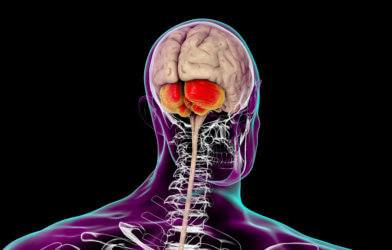Mason Marks, Senior Fellow at the Petrie-Flom Center for Health Law Policy, Biotechnology, and Bioethics, is leading up a three-year research initiative called POPLAR, or the Project on Psychedelics Law and Regulation.
The project is funded by Tim Ferriss’ charitable organization, the Saisei foundation, and is meant to examine the “ethical, legal, and social implications of psychedelics research, commerce, and therapeutics.”
POPLAR aims to promote safety, innovation, and equity in psychedelic research and may be considered a global leader in the space as the first academic initiative focused on this area of law and policy.
According to the Petrie-Flom Center website, the project will study:
- Ethics in Psychedelics Research and Therapeutics
- Challenges at the Intersection of Psychedelics and Intellectual Property Law
- Opportunities for Federal Support of Psychedelics Research
- Access to Psychedelic Therapies and Equity in Emerging Psychedelics Industries
- The Role of Psychedelics in Healing Trauma
Ferriss’ financial backing of this project and others, like MAPS, in combination with the legislative pushes in states like Oregon and California demonstrate the slow-growing acceptance that these novel therapies are necessary.
Marks argues there is no other option but to pursue the research and commerce of these treatments as an answer to the mental health crisis in our world today. The therapeutic benefits of psychedelics like psilocybin and ketamine have been well documented and their commercial potential has driven speculation that the market will reach $6.85 billion by the year 2027.
It has only been 4 years since the Food and Drug Administration named MDMA a ‘breakthrough therapy’ for PTSD and only 3 years since psilocybin has been recognized as a breakthrough treatment for drug-resistant depression.
Since then, states like Maine, Vermont, Florida, Iowa, California, Massachusetts, Connecticut, and Hawaii have all sponsored bills that call for the decriminalization, legalization, or other legislative changes to the status of psychedelics. Even Texas has mandated state research into psychedelics as a treatment for Post-Traumatic Stress Disorder.
At least 7 cities across the U.S. have decriminalized psychedelic substances and in November of 2020, the state of Oregon legalized the supervised administration of psilocybin as a medical therapy. Other states are pushing to follow suit such as with Senate Bill 519 in California which would decriminalize psychedelic substances as well as address cultivation, processing, and social sharing.
Despite this forward movement from investors and lawmakers, there is an inherent lack of published research on the ethical, legal, and social implications of psychedelic substances becoming accepted and utilized by the mainstream population.
Marks and the POPLAR team will fill this void with academic research and events in collaboration with industry and government experts as well as the public, which will be necessary to allow future generations to benefit from the substantially better treatment options that are possible for mental illness.








-392x250.jpg)



